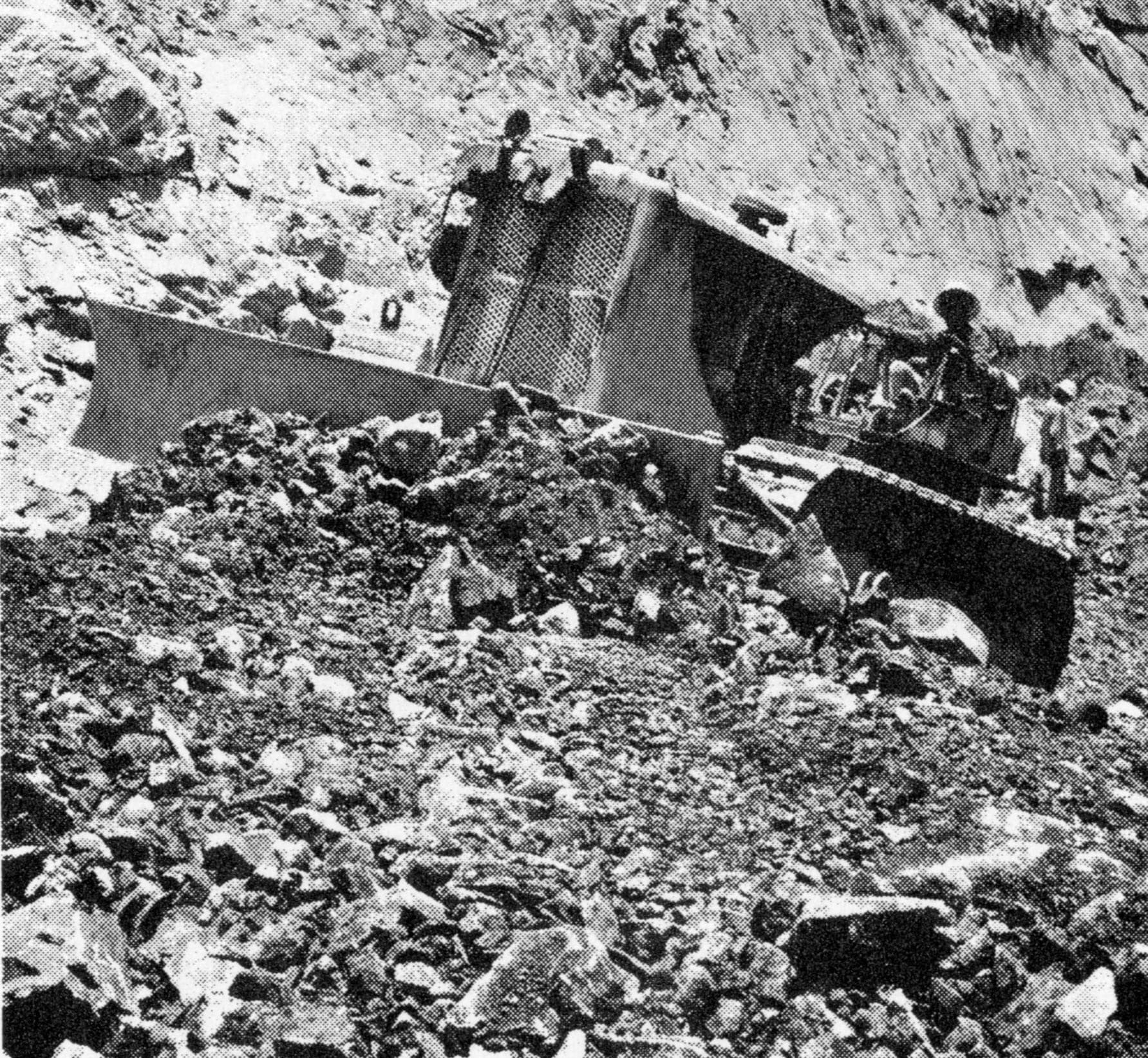Forging Ahead
Edgar Whitehead resumed his political life gradually too, after the Villa de Manica bull fight.

I concluded Sir Edgar Whitehead's pioneer farming days in the Vumba and his remarkable war experience last week. But many readers have expressed great interest in a chronicle of his political career rising to Prime Minister in 1958-62. So I'm interrupting my new series with this teaser to look forward to in the future...
He was elected to office in the Umtali ex-Serviceman's organization and took an active part in the Eastern Districts Regional organization specializing on plans for the irrigation of the Sabi Valley. He travelled around the country in support of the food production drive and large scale irrigation schemes and took a special interest in resettling ex-Servicemen on the land.
Early in 1946 the first General Election was held since 1939. He agreed to fight Umtali South for the third time because his successor in the safe seat was extremely popular and lived in the constituency's heart. He generously offered to stand down for Edgar but he did not accept because he needed more time for Witchwood. He did speak all over Rhodesia–from Lomagundi to Fort Victoria, helping Alec Winterton, and for others from Umtali to Bulawayo.
His platform was the need for rapid development and large scale immigration. The opposition leader, Mr. Smit was forecasting a major recession when the RAF scheme closed and was preaching the need for cuts in Government spending. The Labor Party wanted a Social Security program for the European worker equal to the United Kingdom's in scope but far more generous in amount.
Huggins did badly in the elections, getting fourteen seats, Smit's party eleven and Labor five. Huggins continued in office on sufferance from the Labor Party who preferred him to Smit. His cabinet of five members excluding himself was decimated, two members did not seek reelection on grounds of age and two were defeated. Edgar was beaten by ninety votes in Umtali South and so was Winterton at Fort Victoria. The voters at this election defeated all Government candidates who resigned their seats to go on active service!
The bulldozer's arrival made the postwar development of Witchwood possible. It did as much work in a day as a large gang of Africans could do in a month. It was brought out from Umtali on a transporter with the demonstrator from the firm driving in a car in front with a large red flag, to warn oncoming traffic. The demonstrator stayed the night and gave Nat and Edgar several hours of instruction. He showed them how to push out trees of varying sizes without fear of their falling on the bulldozer, or their roots rearing up and overturning it when a tree was falling. He showed them how to loosen tree roots by shaking the tree with the fully raised blade, before pushing it over. He reassured them, "It's quite safe."
Edgar responded, "The tops of our trees are usually full of tree snakes, likely to fall on the driver."
He turned his attention to demonstrating road making, construction of contour ridges, digging irrigation furrows and how to maintain the bulldozer.
Sumajiri (Edgars house servant) promptly christened the bulldozer 'umzoe', the elephant, because he said there was nothing else that knocked trees down like that. Edgar learned to drive and operate it, regularly taking turns with Nat, but he hated every minute of it: the noise, the strain on the small of the back, the clouds of dust in which one worked, the uncertainty of what one would hit next in clearing virgin bush, its tendency to throw one clean over the bonnet when it encountered an old African game pit, were all disconcerting.
Much better than Edgar, Nat played the bulldozer like a musical instrument, but even he grew to hate it. However, they persevered. By December they had built two new roads, cleared many acres of ground for grass planting, plowed the old orchards and delivered great quantities of firewood to Leopard Rock Hotel.
But already in September while Edgar was doing his stint clearing a new paddock, he noticed a smart saloon car come down the road, and stop across from where he was working. He was glad to switch off and dismount although he was wearing a boiler suit with nothing on underneath and was covered with dirt and sweat. He walked over to the car.
There he found none other than Huggins, sitting in the driver's seat, who said to him, "Edgar, I want you to be my Minister of Finance. I knew it was no use writing to you because you never answer letters, so I came down myself."
Edgar loathed that bulldozer so much, he accepted.
The historical novel Whitewashed Jacarandas and its sequel Full of Possibilities are both available on Amazon as paperbacks and eBooks.
These books are inspired by Diana's family's experiences in small town Southern Rhodesia after WWII.
Dr. Sunny Rubenstein and his Gentile wife, Mavourneen, along with various town characters lay bare the racial arrogance of the times, paternalistic idealism, Zionist fervor and anti-Semitism, the proper place of a wife, modernization versus hard-won ways of doing things, and treatment of endemic disease versus investment in public health. It's a roller coaster read.
References:
- Sir Edgar Whitehead's Unpublished Memoirs, Rhodes House, Bodleian Library, Oxford University, by permission.
- Photo Credit: Caterpillar Company 1940's https://www.caterpillar.com/en/company/history/1940.html#multimedia-jEzdq9J6n2pPVyX-gallery

